Summer School
The chief aim of the summer courses is to examine our mission and projects in the laid-back context of the UPV/EHU Summer School
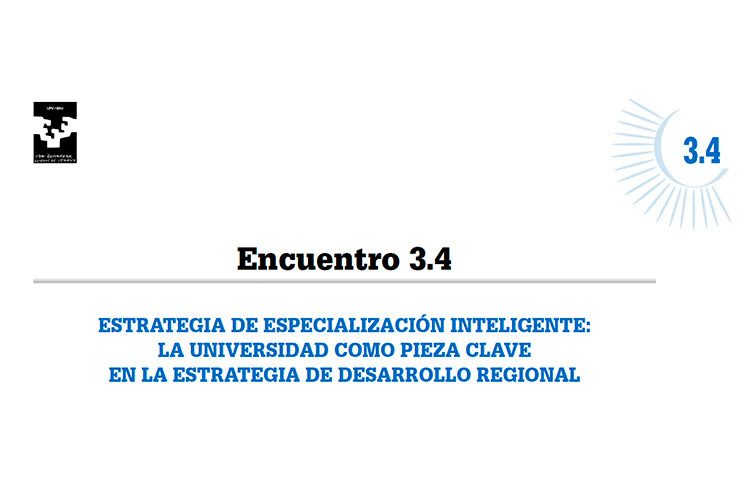
DEVELOPMENT PERIOD
2013
WHAT IS IT?
RIS3 “Smart specialisation strategy: the University as a key player in regional development strategy”.
Julio 2013, Miramar Palace. UIK UPV/EHU.
MAIN PARTICIPATING ENTITIES
- UPV/EHU Summer School Foundation
- UPV/EHU
- Université de Bordeaux
Speakers: Igor Campillo. Manuel Palazuelos, Leire Bilbao, Amaia Maseda, Miquel Barceló, Anne Verhaag, Wim De Kinderen, Endika Bengoetxea, Itziar Alkorta, Begoña Sánchez, Jordi Campás, Hèléne Jacquet, Marc Moulin, Éric Guilloteau, Fernando Plazaola.
Description
The European regions need to set out a series of smart specialisation strategies with a view to drawing the road maps for regional development and examining how each region approaches research and innovation from a perspective of regional development.
The course examined design strategy, the advances being made by the Basque Government, and potential interchanges with other regions, namely Catalonia, Eindhoven (Netherlands) and Aquitaine (France), to learn how they approach the strategies, with a view to obtaining a wider frame of reference and help towards designing one’s own regional strategy.
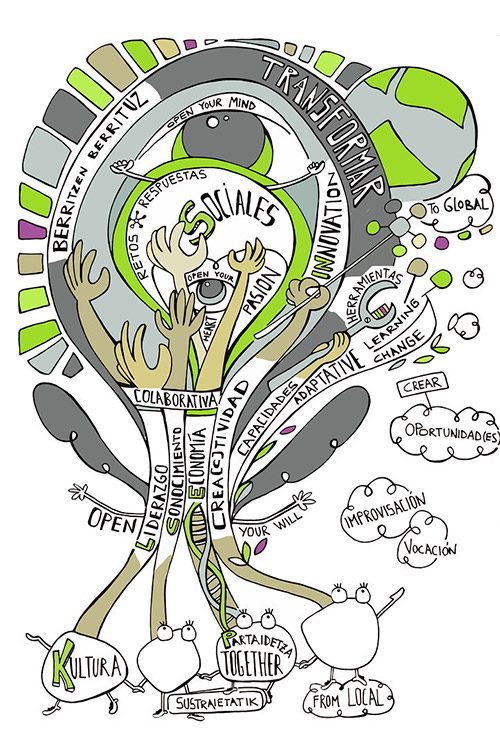
DEVELOPMENT PERIOD
2014
WHAT IS IT?
“Experiences in the development of transformation strategies and processes”
Donostia-San Sebastián 14-15 July 2014. Miramar Palace, UIK UPV/EHU.
MAIN PARTICIPATING ENTITIES
- UPV/EHU Summer School Foundation
- UPV/EHU
- Université de Bordeaux
Speakers: Iñaki Goirizelaia, Juan José Ibarretxe, Adam Price, Angel Nieva, Juan José Goñi, Mikel Gómez, Jon Mikel Zabala, Ander Gurrutxaga, Eugenio Moliní, Iban Arregi, Joan Mari Larrate, Karlos Aizpurua, Hèléne Jacquet, Jordi Campàs, Igor Campillo.
Description
The course was designed as an open space for reflection, dialogue and teamwork, for the interchange of experiences with society and key stakeholders in education, science, technology, innovation and culture, where transformation strategies and processes could be developed across corporate, organisational and regional environments.
Our cities, organisations, territories and nations all support, draw from and supply metrics on multiple transformation processes. They are their indicators, inducers and executors. Complexity runs through all levels, scales and dimensions of transformation processes, in interconnected, interdependent ways. Innovation is simply change that unlocks new value.
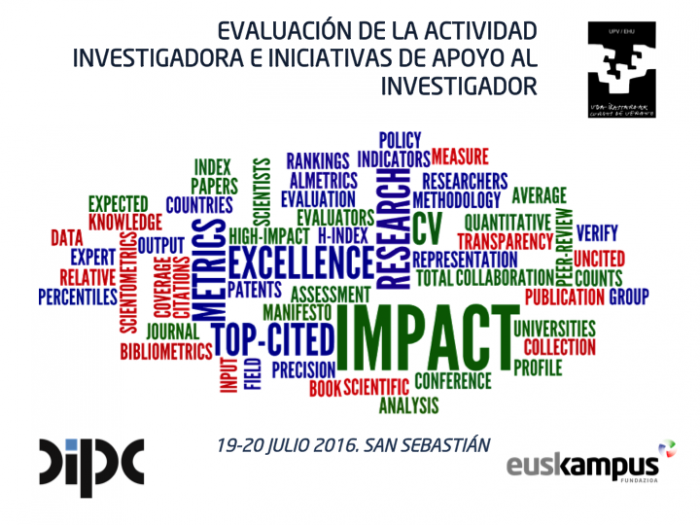
DEVELOPMENT PERIOD
2016
WHAT IS IT?
“Measuring research performance and research support initiatives”
MAIN PARTICIPATING ENTITIES
- UPV/EHU Summer School Foundation
- UPV/EHU
- Université de Bordeaux
Speakers: Julieta Barrenechea, Julio Bravo de Pedro, Fernando Cossio, Rodrigo Costas, Domingo Docampo, Eva Ferreira, Miguel García, Juan Gorraiz, Monsterrat Hidalgo, Antonio Huerta, Isabel Iribarren, Evaristo Jiménez, Fátima Pastor, Marian Piñeiro, Maria José Rodriguez Tojo, Daniel Torres Salinas, Elías Sanz Casado.
Description
The course was designed to share experiences in measuring research performance, analyse the correct use of bibliometric indicators and identify institutions that develop evaluation processes across a range of levels and methods.
The Leiden Manifesto for Research Metrics provided the baseline for the course: http://www.leidenmanifesto.org/
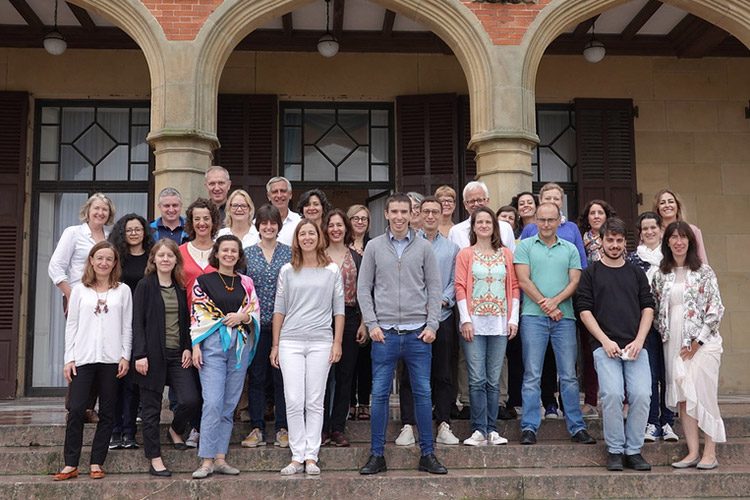
DEVELOPMENT PERIOD
2018
WHAT IS IT?
“We love transdisciplinarity maite dugu: Shaping future universities”
MAIN PARTICIPATING ENTITIES
- UPV/EHU Summer School Foundation
- UPV/EHU
- Université de Bordeaux
Speakers: Adela Balderas, Olivia Bina, Prue Chiles, Pierre Domingues Dos Santos, Leire Escajedo San Epifanio, Idoia Fernández, María García Alvarez, Andrey Girenko, Maurice Rekrut, Liesbeth Rijssdik Windesheim, Carlos Sessa.
Description
There is widespread awareness of the need to examine further interdisciplinary approach and its ability to transform how knowledge is created: pressing global and societal challenges require a fundamental convergence of disciplines, working in shared fields. Converge spaces are fertile ground for the creation and transformation of conceptual and methodological frameworks that can be claimed by no one single discipline.
Course goals:
- To promote an interdisciplinary approach to academic research as a means of engaging universities with social sustainability.
- To share experiences of transformation initiatives and process with an integrated approach taking place in higher education and research environments.
- To gather methodologies and best practice recommendations to create interdisciplinary approaches and real time co-creation spaces.
- To identify structural and cultural challenges in organizations that approach their work from an inter disciplinary, engaged, open, responsible perspective.
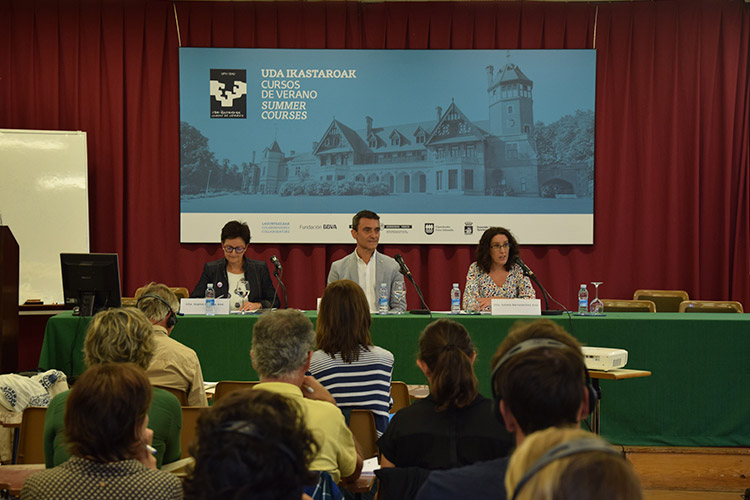
DEVELOPMENT PERIOD
2017
WHAT IS IT?
“Smart Euroregional specialisation”
The ocean experiences strategy and aquatic action sports (social, financial and technological challenges).
MAIN PARTICIPATING ENTITIES
- UPV/EHU Summer School Foundation
- UPV/EHU
- Université de Bordeaux
Speakers: Juan Aldaz Arregui, Itziar Alkorta Idiakez, Stephanie Barneix, Manuel de Lara, Gibus de Spoultrait, Kotte Ecenarro, Xabier Faucher, Auxkin Galarraga Ezponda, Jokin Garatea, Louise Kempton, Francois Laterrade, Arturo Muga, Ruben Otero, Cristina Peña Rodriguez, Miky Picon, Christophe Seiller.
Description
This joint University of the Basque Country – Université de Bordeaux initiative focussed on territorial development opportunities and analysed the contribution and projection of aquatic action sports as a strategic sector to dynamise innovation and smart specialisation in the Aquitaine-Euskadi cross-border area.
The aquatic action sports sector has been identified as a key driver of smart specialisation at a Euroregional level. The course combined conceptual approaches and focuses from territorial stakeholders and organisations.
Objectives:
- To analyse the contribution and projection of aquatic action sports as a key driver of innovation and smart specialisation in the Aquitaine-Euskadi Euroregion, with reference to the international context.
- To identify the primary social, economic and technological challenges to the development of action sports as a smart specialisation sector.
- To promote the exchange of knowledge between public and private stakeholders in the action sports sector, building synergies and virtuous circles to create value and make the territory more competitive by using an integrated, innovation-without-borders approach.
- To revitalise action sport facilities, capacities, projects and developments in the Euroregion.
- To foster active integration of participants, promoting teamwork and the creation and extension of networks as tools for creating value and innovating without borders.
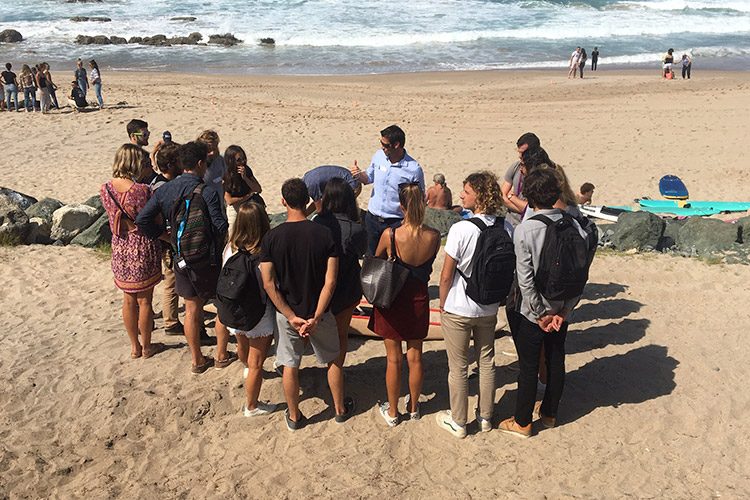
DEVELOPMENT PERIOD
2019
WHAT IS IT?
“Oceans and collective cross-border challenges: plastic pollution and safety in coastal activities”.
Donostia-San Sebastián and Hendaye 12-13 September 2019.
MAIN PARTICIPATING ENTITIES
- UPV/EHU Summer School Foundation
- UPV/EHU
- Université de Bordeaux
Speakers: Juan Aldaz Arregui, Maider Aldaz Odriozola, HEISEL EU Empresa Alexandre Ekstrand, Itziar Alkorta Idiakez, Marie-Laure Andres, Ohiane Cabezas, Jerome Cachot, Bruno Castelle, Xabier Curto, Itxaso Etxebarria Lekanda, Idoia Fernández, Guillaume Ferré, Jokin Garatea, Aymeric Juon, David Lannes, Fátima M’Zali, GEOSAT Empresa Marc Etcheverry, Thomas Margueron, Cristina Peña Rodriguez, NOTOX Empresa Pierre Pommiers, Itziar Rekalde, Jesús Rubio Pilarte, Miren Jasone Urkola Iriarte, Karin van der Worp, Loic Vidal, Jean Philippe Savy.
Description
The University of the Basque Country – Université de Bordeaux summer course focussed on “the ocean as a source of risk”, examining the dilemmas and challenges of water quality and plastic pollution, as well as the security challenges (prevention, intervention, healthcare) posed by water-sports and other leisure activities along the Euskadi-Aquitania coast.
An interdisciplinary approach was used to identify challenges and to engage stakeholders, studies, projects and initiatives that propose solutions from a cross-border territorial development approach.
Learning-from-experience models were used to set up active learning spaces, showcases, workshops and visits to facilities with the aim of promoting synergies between sectors and stakeholders. Students from both universities generously helped with outreach for the event.
Objectives:
- To examine the dilemmas and challenges of the ocean as a source of risk focussing on plastic pollution, as well as the security challenges posed by coastal activities.
- To leverage emerging knowledge and innovations in investigating, preventing and managing said risk.
- To promote and connect cross-border projects, initiatives and capacities involved in research, training, innovation and entrepreneurship in the field in question.
- To help define ambitious challenges that will allow us to mobilise the cross-border knowledge and innovation community around the sustainable management of the risks.
- To help position the territory as a centre of excellence in these fields, building synergies across the network of cross-border stakeholders (university, industry, officialdom, associations, etc.).
